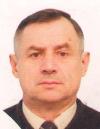1. Druzhilov S. A. «Pilim suk, na kotorom sidim...»: Problemyi segodnyashnego zaochnogo i ochno-zaochnogo platnogo vyisshego professionalnogo obrazovaniya // Psihologiya, sotsiologiya i pedagogika. 2012. # 2 [Elektronnyiy resurs]. URL: http://psychology.snauka.ru/2012/02/214 (data obrascheniya: 30.09.2016)
2. Kolesnikova I. A. Nepreryivnoe obrazovanie kak fenomen XXI veka: novyie rakursyi issledovaniya // Nepreryivnoe obrazovanie: XXI vek. 2013. # 1. URL: http://lll21.petrsu.ru/ journal/ atricle.php?id=1941 (data obrascheniya 30.09.2016).
3. Federalnaya sluzhba gosudarstvennoy statistiki: Obrazovanie. [Elektronnyiy resurs]. URL:http://www.gks.ru/wps/wcm/connect/rosstat_main/rosstat/ru/statistics/population/education/# (data obrascheniya: 02.10.2016).
4. Yakupova O. V. Zaochnoe obuchenie v predstavlenii studentov // Vestnik Chelyabinskogo gosudarstvennogo universiteta. Filosofiya. Sotsiologiya. Kulturologiya. – Chelyabinsk, 2011. – Vyip. 20. – S. 167-171.
5. Staroverova N. A. Problemyi zaochnogo obucheniya v sfere professionalnogo obrazovaniya. // Mezhdunarodnyiy nauchno-issledovatelskiy zhurnal. – 2012. – # 9. – C. 237-239.
6. Moshkina E. V. Organizatsionno-pedagogicheskoe soprovozhdenie protsessa podgotovki studentov zaochnoy formyi v usloviyah elektronnogo obucheniya : diss. … kand. ped. nauk. Sibirskiy federalnyiy universitet. Krasnoyarsk. 2014. 185 s.
7. Miheeva S. A. Opyit i perspektivyi ispolzovaniya elektronnogo obucheniya v obrazovatelnoy srede Pedagogicheskogo universiteta / S. A. Miheeva, E. P. Svit // Izvestiya rossiyskogo pedagogicheskogo universiteta im. A. I. Gertsena. S.-Peterburg, 2014. – Vyip. 168. – S. 122-127.
8. Kommentarii Blackboard i BG Distribution (Rossiya) o partnerstve dvuh kompaniy. [Elektronnyiy resurs] // Education-events. Tehnologii v obrazovanii: novosti i sobyitiya. 09.09.2014. URL: http://education-events.ru/2014/09/09/bg-distribution-comments-its-reselling-agreement-with-blackboard/ (data obrascheniya 30.09.2016).
9. Moshkina E. V. Metodyi povyisheniya kachestva prepodavaniya fiziki na zaochnom otdelenii // Fizika v sisteme sovremennogo obrazovaniya: Materialyi XII Mezhdunarodnoy nauchnoy konferentsii. - Petrozavodsk: PetrGU, 2013. – T. 1. – S. 159-162.
10. Nazarov A. I. Analiz effektivnosti ispolzovaniya distantsionnyih obrazovatelnyih tehnologiy v bakalavriate / A. I. Nazarov, O. V. Sergeeva // Nepreryivnoe obrazovanie: XXI vek. Vyipusk 3 (7), 2014. DOI: 10.15393/j5.art.2014.2444 (data obrascheniya 30.09.2016).














